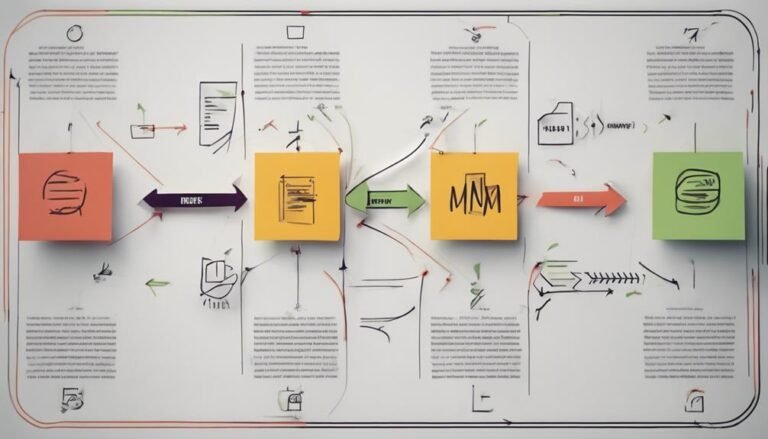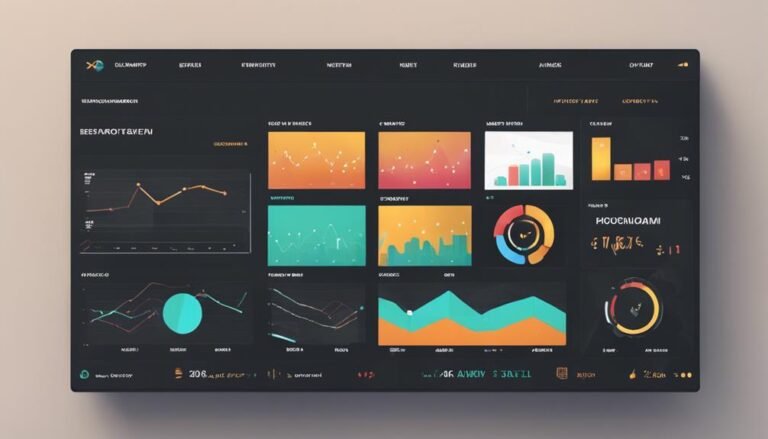Social Media Automation
In the fast-paced world of social media, automation has become a critical tool for businesses looking to streamline their online presence. The ability to schedule posts, analyze data, and maintain a consistent brand image across platforms has revolutionized the way companies connect with their audiences.
However, while automation offers numerous benefits, there are key considerations to keep in mind to ensure its effectiveness and avoid potential pitfalls. By exploring the nuances of social media automation, businesses can unlock its full potential and achieve greater success in their digital marketing strategies.
Key Takeaways
- Streamline processes and maximize outreach potential.
- Save time and resources with efficiency.
- Foster brand loyalty through consistent content delivery.
- Stay competitive by utilizing automation for modern businesses.
Importance of Social Media Automation
Utilizing social media automation is a fundamental aspect of modern digital marketing strategies due to its efficiency in streamlining processes and maximizing outreach potential. Increased efficiency is a key benefit of using social media automation tools. By automating repetitive tasks such as scheduling posts, monitoring engagement, and analyzing performance metrics, businesses can save valuable time and resources. This time-saving aspect allows marketing teams to focus on more strategic initiatives, content creation, and engaging with their audience in a meaningful way.
Moreover, social media automation ensures that content is consistently delivered to the target audience at optimal times, regardless of the team's availability. This consistent and timely delivery helps in maintaining a strong online presence and fostering brand loyalty. By automating routine tasks, businesses can also maintain a more organized and cohesive social media strategy, leading to better overall performance and results. In essence, social media automation is not just a convenience but a necessity for modern businesses looking to stay competitive in the digital landscape.
Tools for Social Media Automation
When implementing a social media automation strategy, selecting the right tools is crucial for maximizing efficiency and effectiveness in digital marketing efforts. To achieve automation efficiency and implement time-saving strategies, businesses can utilize various tools tailored to meet their specific needs. These tools aid in streamlining processes, scheduling content, and maintaining a consistent post frequency.
- Social Media Management Platforms: These tools offer a centralized dashboard for managing multiple social media accounts, scheduling posts in advance, and analyzing performance metrics. They help in maintaining brand consistency across different platforms.
- Content Calendar Tools: Content scheduling is essential for a successful automation strategy. Content calendar tools enable users to plan, organize, and schedule posts across various social media channels. They ensure a steady flow of content and help in maintaining an active online presence.
- Analytics and Reporting Tools: Monitoring post frequency and analyzing engagement metrics are vital for refining social media strategies. These tools provide insights into audience behavior, allowing businesses to optimize their content for better engagement and reach.
Best Practices for Automation Success
To achieve optimal results in social media automation, adhering to best practices is essential for enhancing efficiency and maximizing the impact of digital marketing strategies. When it comes to automation efficiency, it is crucial to carefully plan and schedule content to ensure a consistent online presence. Utilizing content scheduling tools can streamline the process, allowing for posts to be published at the most effective times for the target audience.
Effective automation also involves maintaining a balance between automated and manual interactions. While automation can save time and effort, personalized engagement is key to building relationships with followers. Therefore, it is important to regularly monitor automated processes to ensure they align with the overall marketing goals and brand voice.
Furthermore, tracking and analyzing the performance of automated campaigns is vital for making data-driven decisions and optimizing future strategies. By leveraging analytics tools, marketers can gain valuable insights into audience behavior and preferences, enabling them to refine their content and scheduling for maximum impact.
Maximizing Engagement Through Automation
Maximizing engagement through strategic automation techniques is crucial for enhancing audience interaction and driving digital marketing success. By utilizing automation tools effectively, businesses can significantly increase their reach and boost interaction with their target audience.
Here are three key strategies to maximize engagement through automation:
- Personalized Messaging: Tailoring content based on user preferences and behaviors can create a more personalized experience, increasing the likelihood of engagement.
- Consistent Posting Schedule: Automation allows for scheduling posts at optimal times when the target audience is most active, ensuring maximum visibility and engagement.
- Interactive Content Automation: Implementing tools that automate interactive content such as polls, quizzes, or contests can boost audience participation and encourage social sharing.
Measuring Success With Automation
Effective measurement of key performance indicators is essential in evaluating the impact and success of social media automation strategies. Tracking metrics and analyzing data play a crucial role in determining the effectiveness of automation tools in achieving predefined goals. By closely monitoring various metrics, businesses can gain valuable insights into the performance of their automated social media campaigns.
To effectively measure the success of social media automation, businesses should focus on key metrics such as engagement rates, click-through rates, conversion rates, and overall reach. Analyzing these metrics over time can help in identifying trends, understanding audience behavior, and making necessary adjustments to optimize automation strategies for better results.
| Metrics | Description | Importance |
|---|---|---|
| Engagement Rates | Measure of how audiences interact with content | Indicates content relevance and audience interest |
| Click-Through Rates | Percentage of users who click on a link | Reflects the effectiveness of call-to-action |
| Conversion Rates | Percentage of users who complete a desired action | Indicates the effectiveness of the campaign in driving desired outcomes |
Conclusion
In conclusion, social media automation plays a crucial role in enhancing efficiency and maximizing engagement for businesses. Research shows that businesses using automation tools experience a 50% increase in engagement compared to those who do not.
By implementing best practices and measuring success through analytics, companies can effectively leverage automation to drive their social media strategies forward. Embracing automation can lead to significant improvements in engagement and overall success in the digital landscape.







